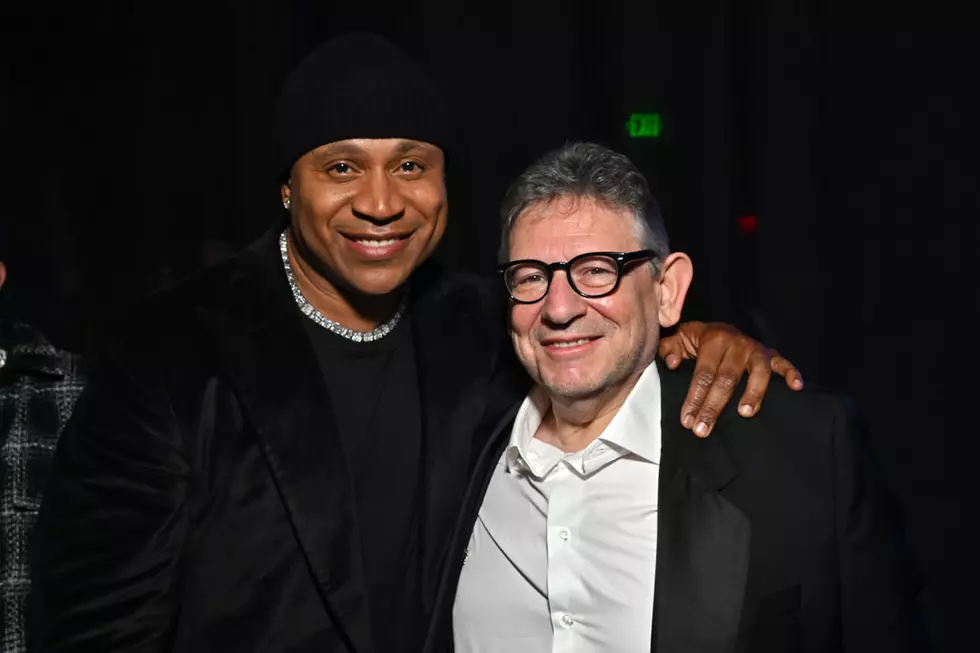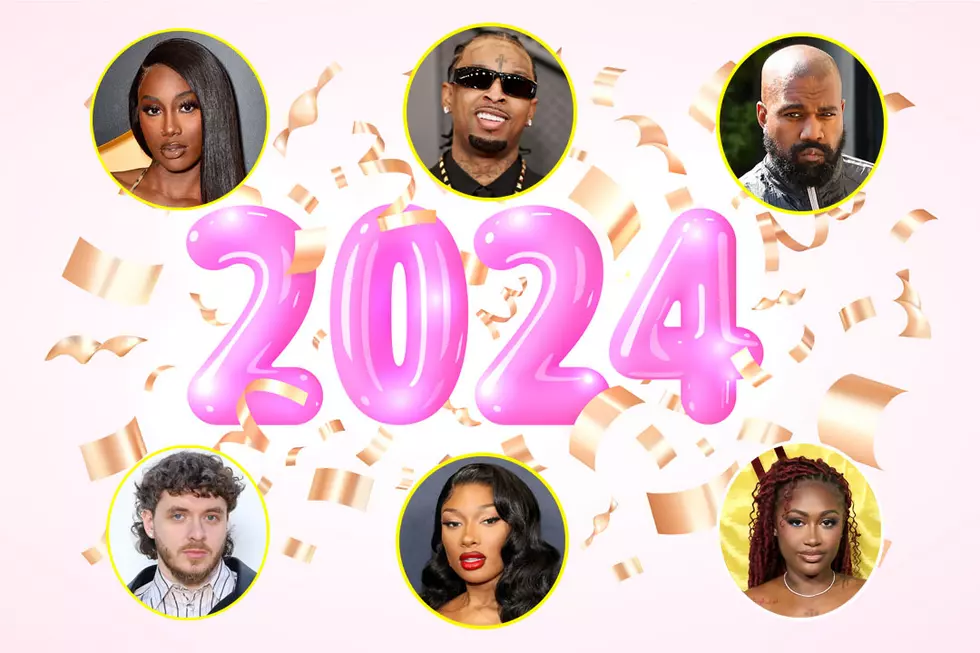
From Robbing to a Record Deal: The Tee Grizzley Story
Ever since Prohibition, Detroit has been overrun with violence. In the 1920s, the Purple Gang held such a bloody reign over the bootleg circuit, even Al Capone chose to make peace instead of trying to expand into their territory from Chicago. In 1943, after 20,000 White workers walked off the job at a plant manufacturing parts for bombers and PT boats because a small group of Black workers got a promotion, race riots broke out. Twenty-four years later, then-President Lyndon Johnson dropped paratroopers from the 82nd and 101st Airborne Divisions into the streets of Detroit to halt the 12th Street riot that erupted when police raided a bar in a mostly-Black neighborhood and arrested 82 people in 1967.
Then the 1980s came, and as heroin gave way to crack, Reagan declared war. Mass incarceration decimated inner-city families while Detroit gangs like Young Boys Inc., Pony Down and Adidas helped circulate the massive influx of drugs.
All the while, Detroit was coming apart at the seams, and as White flight and globalization left neighborhoods bare and jobs hard to find, Detroit became one of the most dangerous cities in the U.S. "Illegal economies are dangerous economies, they are economies of desperation, they are accompanied by violence, they are accompanied by crime," says Heather Ann Thompson, professor of history at University of Michigan. By 1994, Detroit's murder rate was roughly 54 homicides per 100,000 residents, one of the highest in the country.
That was the same year Tee Grizzley, 23, was born. Raised on Joy Road in West Detroit, he had what he calls an "underprivileged" childhood. "I couldn’t get everything I wanted," the rapper, born Terry Sanchez Wallace, tells XXL. "I had an abusive household, a lot of drugs coming in and out of there."
Yet for some reason, he never let the lure of the streets completely consume him. "My mans in the streets, they took a path that everybody takes, statistically speaking, but for some reason I was just always on the right track," he shares. "And it’s not because of nobody or nothing but God. It wasn’t because of me and it wasn’t because of nobody around me. God just kept me on the right path. I never smoked, drank, none of that. Always got good grades, but I’m in the hood with the worst of the worst people every day."
His grandmother raised him since his mother and father were in and out of jail, and he grew up listening to a lot of R&B in her house. "I was raised by my grandma, had aunties and sisters in the house," Tee says. "So when I’m out running in the streets and I come [home], they got music blasting and it’s all R&B. Nineties R&B, ‘80s, 2000s, stuff like that."
When Tee was about 8 years old, he remembers being amazed at how his uncles could go to a studio, come back and hear their own voices on the speaker system. "I was just blown away by that," he recalls. "I’m like, 'That’s crazy. How y’all do that? Y’all really went to a real studio?' And once I did it and heard my voice, I fell in love with it."
He couldn't rap very well at the time, but he began honing his craft by studying established Detroit rappers like Blade Icewood and the Street Lordz, and by the time he was 14, he started taking rap seriously. "I would listen to Detroit artists, go to the studio and try to do the same thing they were doing but better."
In middle school, he found out a couple of his friends (Lee, JR and Po) rapped too, and together they formed a group called AllStars Ball Hard. He took on the name ASBH Tee, and though he never dropped a solo tape, they would record and post their tracks on YouTube. "We ain’t know what we was doing, we just knew we had to come up with certain amount of songs and put them out."
Then, in 2011, his mother was sentenced to 15 years for drug trafficking, and a year later, his father was murdered. "He was in the streets, and when you’re in the streets you either win or lose," Tee says of his dad. "You’re gonna have people that either love you or hate you, and in the streets, the people that hate you are gonna want to kill you. It wasn’t for him necessarily, but the life he was living, you know… I’ll never question what God did. Whatever decision God make, I’m riding with it."
Tee was the first family member in generations to attend college, and he chose to attend Michigan State University to study finance and accounting. But during his freshman year in February of 2014, he went broke, and seeing no other option, he started sneaking into unlocked dorm rooms late at night and stealing things. According to police statements, Tee and an accomplice named Jeremy Christian Ford stole computers, cash and other electronics out of rooms in Hubbard Hall between Feb. 12 and Feb. 27. Police would later recover around $10,000 in cash and another $10,000 in electronics.
On Feb. 27, both Wallace and Ford were apprehended by police but soon released pending an investigation that looked to gather more evidence ahead of issuing a warrant. Instead of sticking around, Wallace went on the run to Kentucky while a warrant was issued for his arrest.
A few months later, on July 1, Tee ran up in a jewelry store called The Castle Jewelry and Pawn in Lexington, Ky. with two fellow Detroit accomplices—Theo Evans and Dwan Harris. Tee was wearing a Rolex as one of them smashed a case full of the watches with a sledgehammer. They were ready to escape with the watches when the general manager at the store pulled out a gun and made all three of them get on the ground until police came.
Initially charged with first-degree robbery in Kentucky, he got his charges knocked down to theft by unlawful taking or disposition and was sentenced to nine months. From there, he was extradited to Ingham County in Michigan and charged with two counts of second degree home invasion. He was convicted on Feb. 3, 2015, and sentenced to 18 months in jail in October.
Once in Michigan, he served time in St. Louis Correctional Facility, Macomb Correction Facility and Jackson State Prison. "When I first came in, I used to fight," he remembers. "I used to get jumped, jump people, steal from people, get stuff stolen from me. But I realized that ain’t how I want to do my time, plus I want to go home. I realized that I got problems bigger than anything that can happen in prison.
"So I started reading books, talking to people who had a head on their shoulders, sold my TV and just got a whole bunch of books. Started talking to old people, people who weren’t coming home, started figuring out what was important."
He took on the name Tee Grizzley while he was imprisoned. "That’s what people was calling me in there because I let my beard grow out, my dreads was wild, I was in there acting crazy. Working out, getting real big, just acting a grizzly in there."
While locked up, he wrote all of his debut mixtape, My Moment. In April 2015, he wrote a song called "First Day Out," and when the day finally came for him to be released on parole on Oct. 18, 2016, he went right to the studio and recorded the song wearing the same clothes he'd worn in jail. He shot a video outside of the closest jail, Ryan Correctional Facility, and then approached Joseph McFashion, owner of popular Detroit YouTube channel and website 4sho Magazine, to host the video. McFashion agreed, Tee paid him $250 and the video was released on Nov. 7, 2016. Within weeks it was racking up millions of plays.
"It’s like a breath of fresh air, for me and my fans, because this type of music is really not around," Tee says about the massive success of the song. "It’s kind of hard to tell your life story and state all facts and it still be sweet. A lot of people that tell their life story, it be boring, ain’t nobody wanna hear that. We wanna hear something hype, we wanna be turnt up. But I do it in a way where I’m telling my life and it’s still intriguing."
Tee's manager JB, who's also his aunt, connected him with the song's producer, a popular Detroit beatmaker named Helluva who's been around for over a decade. JB loved the beat Helluva made for a song called "Click Full of Bosses" by Helluva's old group MadeWest and wanted to have him record with Tee. When Helluva played Tee the beat for "First Day Out," Tee knew that was the one.
"Honestly… that [Meek Mill] 'Dreams and Nightmares' intro been one of my favorite songs for a long time," says Tee when asked why he chose that beat. "And I know how that moved me when I heard it, so I know that if I take a different approach, but with that same blueprint, I know what it would do to somebody else, especially people that know me and know my story."
By December, Tee had signed a deal with 300 Entertainment, and by the end of the month, Trey Songz and Chris Brown had brought him out at Joe Louis Arena in Detroit to perform his hit song for the 20,000-seat venue. "The crowd went crazy for Trey Songz, they went crazy for Chris Brown, [but] they lost their mind for me," remembers Tee.
His debut mixtape, My Moment, dropping April 7, features 10 beats from Helluva, plus two from Sonny Digital and one from DJ Mustard. The intro finds Tee just banging on a table and spitting, much like Kevin Gates did with "IHOP," while other songs like "How Many" and the outro, "My Testimony," feature Tee singing. "That singing puts some soul on it," he says. "It makes it connect a little better. I like that type of music more than rap anyway to be honest with you. I like that old school R&B, it make me feel good."
Tee's in an unusual position for a Detroit rapper. As he said during our multiple conversations, everybody in the city raps, and his style isn't entirely different from the hard-hitting sounds of Payroll Giovanni or Eastside Peezy. But he never wastes a bar, filling every line with vivid details of his anguish. Now, he's one of the first street rappers from Detroit to gain national attention outside of the city, and he's not content with wasting the moment.
"I want to lock in a certain group of people, because right now it’s kinda all over the place," Tee Grizzley says about the tape. "You got the party people, you got the artists. I want to lock in people who like real music, who like substance in their music, who wanna listen to people with something to talk about. I want to lock them people in so I can forever give them what they’re looking for. Because I don’t want to disappoint nobody, even though I want everyone to vibe, I don’t want to disappoint you and have you think this was some bullshit that you’re used to. I don’t want to confuse nobody. If somebody likes mumble rap or Auto-Tune rap, this ain’t that."
Fans Name Rappers They Think Will Blow Up This Year
More From XXL









